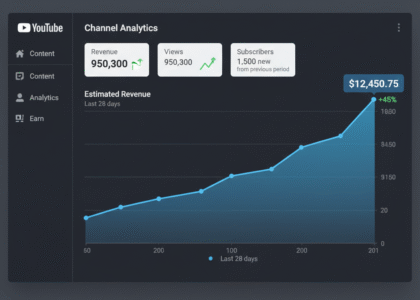Losing a job can be one of the most stressful and uncertain times in anyone’s life. Not only does it affect your emotional well-being, but it also puts your financial security at risk. Understanding unemployment financial planning is crucial for managing your finances effectively during such a challenging time. With the right approach, you can navigate unemployment without sinking into debt, preserving your financial stability, and even using the opportunity to make smarter financial decisions.
In this blog, we will walk you through the steps to take in planning your finances during unemployment, offering practical tips, strategies, and resources to help you weather the storm.
Why Unemployment Financial Planning Matters
When you’re out of work, your income stream is interrupted. This disruption can lead to a ripple effect, impacting everything from your bills to your savings goals. Without proper unemployment financial planning, you might find yourself struggling to meet everyday expenses or resorting to high-interest debt, which could exacerbate your financial situation.
With careful planning and by implementing some smart strategies, you can minimize the impact of unemployment on your finances. The key is to make a budget, assess your savings, and prioritize essential expenses while seeking opportunities to improve your income during this transitional period.
Steps for Effective Unemployment Financial Planning
1. Assess Your Financial Situation

Before jumping into your financial plan, take stock of your current situation. This step will provide clarity on where you stand and help you make informed decisions. Start by reviewing:
- Savings: How much emergency savings do you have? Ideally, you should have 3-6 months’ worth of living expenses saved up for situations like unemployment.
- Unemployment Benefits: Determine whether you qualify for unemployment insurance and how much you’re eligible to receive. This will give you a better idea of your temporary income replacement.
- Debts: Make a list of your current debts and monthly obligations, such as mortgage payments, credit card bills, and loans.
Understanding your financial resources and obligations will help you make strategic decisions about where to cut back and how to reallocate funds.
2. Cut Back on Non-Essential Expenses
When your income is limited, trimming down non-essential expenses is a necessity. Here are some steps to help you cut back:
- Cancel Subscriptions: Review monthly subscriptions (streaming services, gym memberships, etc.) and cancel any that you don’t absolutely need.
- Limit Dining Out: Cooking at home rather than eating out can significantly save you money.
- Delay Large Purchases: Avoid making big-ticket purchases unless absolutely necessary. Focus on the essentials.
By focusing on your essential needs and eliminating non-essentials, you can free up funds to cover your basic expenses.
3. Create a Budget for Unemployment
A budget is essential for unemployment financial planning. It will help you control your spending, avoid debt, and ensure that you’re living within your means. Start by creating a simple budget:
- Essential Expenses: List your rent/mortgage, utilities, groceries, transportation, and healthcare costs.
- Variable Costs: These include entertainment, discretionary spending, and personal purchases. Focus on reducing or eliminating these.
- Debt Repayment: Prioritize paying off high-interest debt, like credit card balances, to prevent financial strain.
Use budgeting apps or spreadsheets to track your expenses and ensure that you are staying within your income limits during unemployment.
4. Explore Ways to Supplement Your Income

While you’re actively job searching, there are several ways to supplement your income:
- Freelancing or Gig Work: Use your skills for freelance work or gig opportunities. Websites like Upwork or Fiverr can help you connect with clients.
- Part-Time Jobs: If possible, consider taking on part-time work to ease the financial burden during this period.
- Sell Unused Items: Decluttering your home can generate extra cash. Sell unused items through platforms like eBay or Facebook Marketplace.
These side-income options can help reduce the financial stress while you look for a full-time job.
5. Prioritize Debt Repayment Strategically
During unemployment, it’s crucial to manage your debt wisely. Pay special attention to:
- High-Interest Debt: Credit cards and payday loans often come with high interest rates, making them a priority. If you’re struggling to make payments, consider contacting creditors to negotiate payment terms or explore debt relief programs.
- Student Loans: If you have student loans, find out if you’re eligible for deferment or forbearance to temporarily stop payments without accruing penalties.
Strategic debt repayment ensures that your limited income goes further without sinking you into deeper financial trouble.
6. Look for Financial Assistance and Support Programs
Many organizations and government programs offer financial assistance to those facing unemployment. Some options include:
- Unemployment Insurance: This program offers temporary income support while you search for a new job.
- Food Assistance: Programs like SNAP (Supplemental Nutrition Assistance Program) can help you cover your food costs.
- Utilities Assistance: Some utility companies offer payment deferrals or discounts for individuals facing financial hardship.
Don’t hesitate to explore these options. They can significantly reduce your financial burden during this challenging time.
FAQs on Unemployment Financial Planning
How can I reduce expenses during unemployment?
Cut back on non-essential items, cancel subscriptions, and avoid large purchases. Create a strict budget that focuses on essential expenses like rent, utilities, and groceries.
Should I take on debt during unemployment?
If possible, avoid taking on new debt during unemployment. Focus on using your savings and exploring alternative income streams. If you need credit, prioritize high-interest debts.
How can I manage job search costs during unemployment?
Keep job search-related expenses minimal by using free job boards, networking through social media, and accessing free career coaching or workshops.
Can I invest while unemployed?
It’s generally best to pause investments and focus on building your emergency savings during unemployment. However, consider low-risk investment options once you regain financial stability.
Conclusion
Unemployment is undeniably challenging, but with effective unemployment financial planning, you can maintain control over your finances and position yourself for a quicker recovery. By assessing your current financial situation, cutting back on unnecessary expenses, and seeking additional income sources, you can manage the financial stress and focus on finding your next job.
Ready to get your finances back on track? Explore more personal finance tips and strategies by visiting GetCashVibe today!






